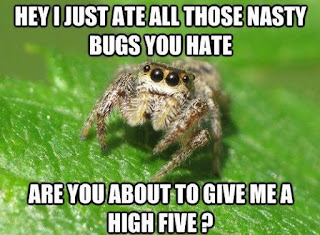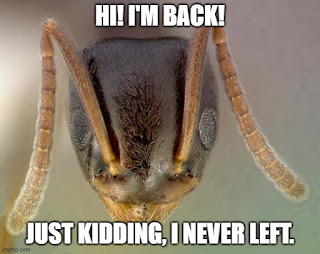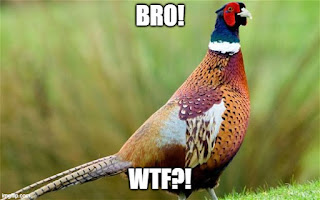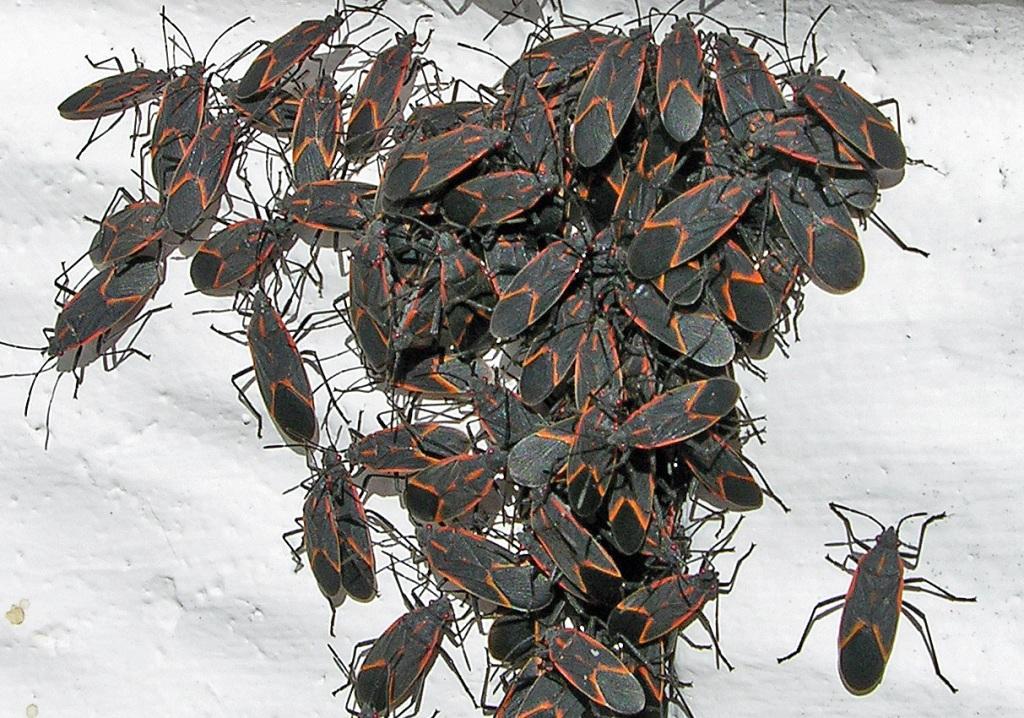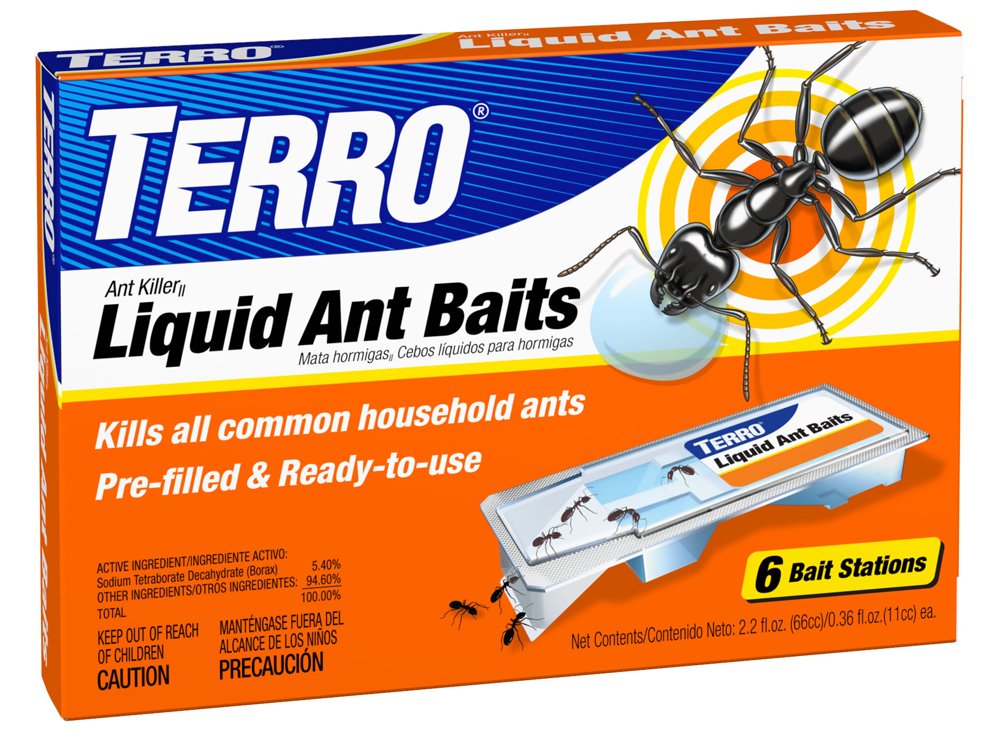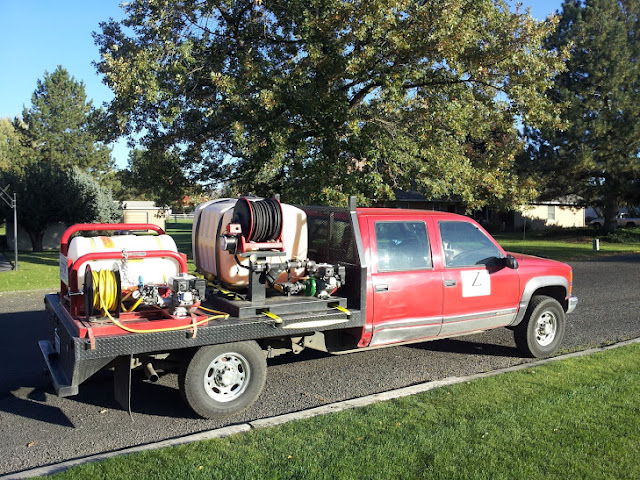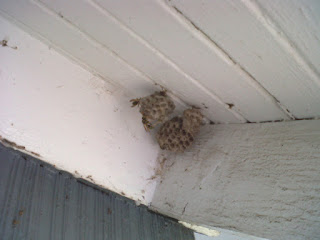Though it is still August now September and the days are remain warm, you may have begun to notice the nights becoming cool and the days just a little bit shorter. It's very slight, almost imperceptible, but it's there.
Several insect and arachnid species around here have noticed, and their changing behaviors clearly indicate that fall is coming.
Call now!
Paul: (509) 540-7946
Jump to: Spiders ∙ Wasps ∙ Boxelder Bugs ∙ Ants ∙ Mice ∙ Pheasants
European paper wasps, several types of spiders, boxelder bugs, and other critters will begin shifting their focus from "out and about" to "in and hide out". Those species that do not overwinter in an egg or pupal stage are in need of shelter to wait out the cold, dark months ahead, and your home or business is high up on their list of real estate to evaluate.
If you're reading this, it's probably because you're not planning on hosting an open house for them.
Here's the most common Walla Walla Valley fall and winter invaders that Z Pest Control can help you with:
Spiders
By far the greatest number of fall service requests that Z Pest Control receives are for spiders. There are several kinds of them in the Walla Walla Valley area that have lifespans of several years, so when the cold months roll around they roll on over to your place. There are both ground dwelling and climbing varieties of spiders that do this, so you'll find them both high and low inside when our hemisphere tilts away from the sun.
In the initial part of what we at Z Pest Control refer to as "spider migration season", typically in September, most of the effort focuses on the exterior of your home or business. We can do interior and exterior work, separately or together, at any time (service fee discounts kick in when multiple services are performed during the same visit), but most of the "bang" for your buck comes from outdoor applications in the early-to-mid part of this annual phase.
If you're a Z Pest Control client on a pre-scheduled monthly or quarterly no-contract service plan, no worries! You're already benefitting from this coverage! We'll be there without you needing to remember to contact us.
WaspsAt our latitude, all wasp species function as "annual" insects, as opposed to a "perennial" species like our fuzzy, buzzy little friends, honey bees. The former construct nests in the spring that are abandoned in the fall, while the latter have true colonies that persist year-round. This is true of European paper wasps, aerial and subterranean yellowjackets, and the born angry bald faced hornets (which are not true hornets; they're a type of yellowjacket... which are wasps. I know, weird, right?).
When those nests are abandoned, the youngest, gravid female wasps seek shelter to sleep off the winter within, they reemerge in the spring, and then they begin their specie's life cycle anew. So as fall approaches, they will begin cramming into any crack or crevice they can find.
That means they're coming to your place, from near and far.
Around structures, this can be places where exterior coverings have separations, gaps around vents or the vents themselves, broken door seals, open containers left outside, etc. If you have vinyl insert windows, the little "weep holes" on the outside of the frame are very popular with these gals, especially the European paper wasps. It is because of this hibernation behavior that you may have found wasps banging their heads against the inside of your windows on past unusually warm mid-winter days, or in the spring: when they wake up, they are often trapped indoors and try to follow the sun to get outside.
Back-to-back exterior applications about 30 days apart in the fall during the start of the wasp hibernation cycle, when they begin seeking out places like your home to go to sleep, help to reduce or even eliminate their presence later on. This in turn decreases the incidents of wasp queens becoming trapped in your house, and greatly reduces the number that emerge from sleep on your property next spring that subsequently decide to establish nests there.
(On that note: when spring comes again, we have ways of intercepting and disrupting wasp nest building behavior, such that you won't have nests in treated areas for the rest of the season.)
Boxelder BugsBoxelder bugs, members of the "True Bug" order (Order Hemiptera), are one of several members of this grouping of insects that inhabit the Walla Walla Valley. The boxelder bug gets particular emphasis here though because they are easily the most numerous, and thereby the most annoying.
Neat, up until flying boxelder bugs are crashing into your face every time you try to walk out your front door.
The summer generation of boxelder bugs is the one that will seek out places to spend the winter, which is why you may have experienced them swarming your home in the fall before. This is also why you may have found yourself vacuuming them up all over the inside on sunny days in late-winter to early-spring when they rapidly emerge from slumber: they find a way into the structure in the fall months, then become fixated on sunlight streaming through your windows when they wake up and try to go about their business again.
There's really no way to stop boxelder bugs from coming to your home or business in the first place, but Z Pest Control can provide exterior applications that will drastically reduce their numbers upon arrival, which will go a long way toward bringing their numbers down inside and out in the months ahead. We also have a comprehensive approach to massively reducing boxelder bug populations locally throughout the year, especially if your property is host to one or several maple trees of any variety.
Ants
It's not because the ants pulled on their snowshoes and trudged their way over to your place, it's because they were there already, probably since the prior spring.
In the warmer months, these ants (and other types that colonize built structures) can do two things: keep nests near the outer perimeter of a structure and forage outdoors for food. This makes it less likely that you will notice their presence. During the colder months, they have to do both things differently: keep nests deep within a structure and forage for food indoors.
Basically, when winter comes, ant colonies that are already within the perimeter of a structure will move further into it. This is because ant larvae require temperatures of at least 68º F or higher to develop, because ant foragers cannot move well when they're cold (or die in extreme cold), and because your nice, warm home or office is probably full of food and water (especially when dark, cold days prompt most people to bring in sugary "comfort foods")!
Z Pest Control offers ant control throughout the year, both inside and out, which can both cure and prevent. Z Pest's outdoor ant control applications can prevent colony establishment within your home or place of business, but if they've already gotten inside, Z Pest has the means to trick them into destroying themselves, top to bottom.
Mice
Like ants, mice are a pest that may have been with you for quite some time, but in more pleasant weather will locate at the perimeters of your home or business rather than nearer the center and thus may escape notice until it gets cold out.Generally, mice will establish nests within 30-40 feet of food sources (both vertically and horizontally), and in locations where they can stay warm as their physiology makes them lose body heat rapidly. While they can and do operate outdoors during the winter months (especially if you keep a full bird feeder nearby!), the better bet for them is to go deeper into structures during winter.
The Z Pest Control approach to controlling mice begins with a key premise: in the "hierarchy of needs" of a mouse, shelter tops the list, so we take away shelter first. Even if your home or office is devoid of food, if a mouse can use it to solve its need for shelter, it will, and then it will solve its need for food later.
Thus, the Z Pest Control rodent control process begins with inspection to identify likely rodent entry points and pathways. The effort then turns to eradication and on-going control by placement of rodenticide baits and various types of traps, which are maintained on a monthly or quarterly service plan (this can be as short in duration as just the first month; Z Pest Control does not stick clients with burdensome contracts!). The bait stations and traps deployed are sold to you so that at the end of the service there's no confusion about who owns what, also enabling you to maintain the rodent control Z Pest has established yourself, or with the help of another provider if you decide to go with someone else.
The mice that get into your house make life harder, so I try to make this easier for you.
PheasantsJust kidding, pheasants are not pests.
Paul does have a current Washington small game license and a raging upland bird hunting habit though. The season is almost here, his 12 gauge is clean and ready, and he has a decent supply of his favorite shot shells on-hand. So, if you know of good "Feel Free to Hunt" locations, or you own property that pheasant, quail, partridge, or grouse call home and you wouldn't mind letting him hunt on it, please call, text, or email him with an invite!
[ Back to top ]
Thanks for reading! If you need help with any of the above creatures, or any of the other pests that Z Pest Control LLC handles, please call, text, or email:

